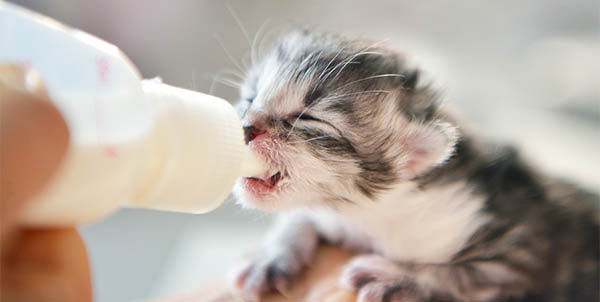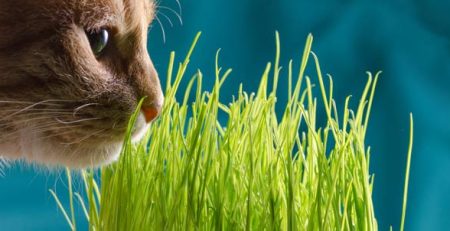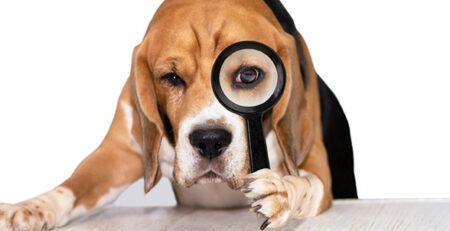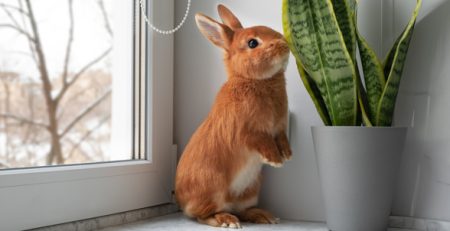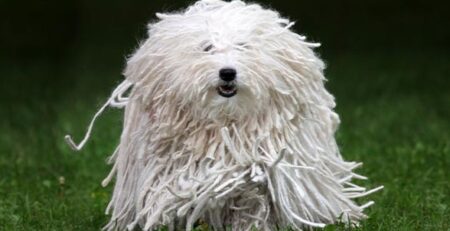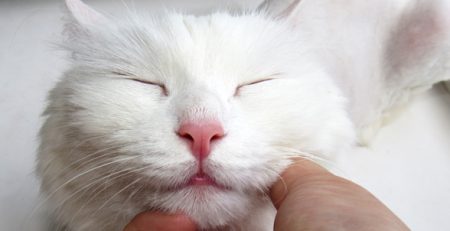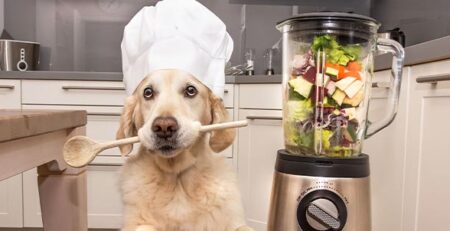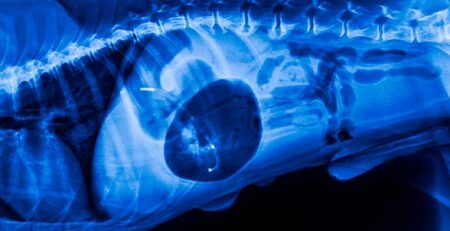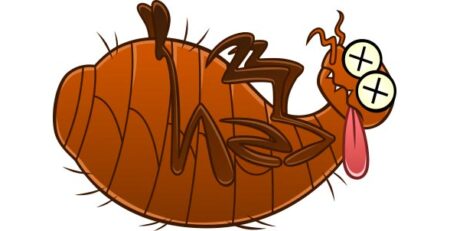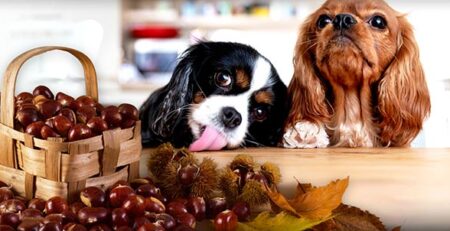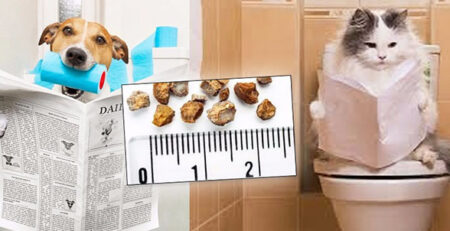Table of Contents
Newborn kittens and lactation: how to substitute for mama cat while avoiding thoughtless practices that endanger the survival of kittens.
It may happen that we have to nurse newborn kittens that have been abandoned by mama cat for different causes.
First of all, the first thing to do if you come across an orphaned kitten would be to immediately run to your Veterinarian to check how the newborn is doing and in case he is already dehydrated, start giving him some fluid therapy, warm him up, and correct his hypoglycemia.
The kitten will need you throughout, and nursing requires expertise and experience.
If you take the place of mama cat and improvise, heeding clichés and implementing thoughtless practices, the survival of the kittens is not so obvious, quite the contrary.
They are very likely to die by your own hand from mistakes that are possible to avoid.
Here, then, is what to do but more importantly we explain what you MUST NOT DO.
Cat puppy milk: powdered and specific only
Newborn kittens can only digest their mother’s milk.
Feeding the wrong type of milk results in diarrhea, dehydration, and nutritional deficiencies that can lead the infant to death.
Cow’s milk and goat’s milk are unsuitable in feeding kittens, so you must immediately purchase powdered formula specifically for infant kittens and give the infant ONLY THAT from the first feeding.
Powdered milk is used in the same way as baby formula: to mix water and powder in the right amounts, stick to the instructions on the package.
Otherwise, if the milk is too concentrated, it could cause stomach upset; on the other hand, if it is too diluted, it could be lacking in nutrients.
How long breastfeeding lasts for newborn kittens, frequency of meals and amount of milk
Kitten milk powder packages also carry a chart indicating the amount and frequency of feedings over a 24-hour period.
Remember to respect the times and intervals between feedings.
It uses a bottle specially designed for kittens, with a long, narrow teat made specifically to fit inside the newborn kitten’s mouth.
This will allow the baby to suck as if it were being suckled by mother cat.
Normal growth includes an increase of about ten grams per day: weigh your kitten regularly to make sure it is gaining weight.
At what temperature should cat puppy milk be heated?
The milk must be at the right temperature: neither hot nor cold.
Heat the bottle with milk in a water bath by placing it in a container containing hot but not boiling water.
The ideal temperature is body temperature: therefore, when you pour a few drops on the back of your hand, make sure it corresponds roughly to the same temperature as your skin.
If it was too hot, it could burn the kitten’s mouth.
If it is cold, digestion is slow and the milk is likely to linger in the stomach and ferment.
After each meal, wash and sterilize the baby bottle in a pot with water to a boil for a few minutes.
The immune system of the newborn kitten is not developed enough to fight infection, and milk and its residues are breeding grounds for bacteria.
The position of the kitten during lactation
Newborn kittens should NEVER be put on their tummies because the milk will end up in their lungs.
Passing milk into the airways, ab ingestis pneumonia is one of the most common causes of death in newborn cats.
The kitten should lie on its belly, in the same position it would take if it were sucking milk from its mother’s udders, with its head erect and neck outstretched.
Hold the teat very close to the kitten’s mouth: by his developed sense of smell he will surely smell the milk and try to move his mouth closer.
It is important to be calm and patient when artificially feeding a kitten and to respect its timing to prevent it from ingesting too much milk or having digestive problems.
At the end of the meal, rest him vertically on your shoulder to burp him.
The stimulation for defecation and urination
Immediately after nursing the young, mother cat stimulates the infant’s defecation and urination by licking its belly and genitals.
In fact, the puppies’ bodies are not yet able to perform all these functions independently.
In his absence, this is also your job and you must provide after each meal.
Use some moistened absorbent cotton and cleanse the anal area with movements that simulate the mother’s tongue.
When the kitten has done its business, remove it with absorbent cotton and clean it thoroughly.
At three weeks old, puppies generally no longer need help with these functions.
Between meals: sleep and lots of warmth for newborn kittens
Newborn kittens, when they are not busy eating, usually sleep snuggled close to their mother, warmed by her body heat since they are still unable to thermoregulate themselves independently.
To help them maintain temperature, use a heating pad or a hot water bottle wrapped in a towel to prevent direct contact from causing burns.
Fill the bag with hot water as often as needed to ensure constant warmth for the baby.
Kitten weaning: when and how
Most newborn cats can follow a solid diet from six weeks of age.
To wean him, the amount of food must be offered in gradually increasing amounts until it gradually replaces milk.
During this stage, always ask your veterinarian for an appropriate weaning diet.
When to worry
- If the kitten does not eat
- If he doesn’t defecate
- If he has diarrhea
- If he doesn’t gain weight
In these cases you need to see your veterinarian because it is very likely that the puppy has some health problem.
Consult a veterinarian if the kitten does not eat at all.
Inappetence may indicate that he is suffering from an illness.
Ideally, always consult with your Veterinarian who will advise you on the right products and the correct ways to use them.
In this regard, we remind you that the veterinary doctors on our Staff are always available to provide you with the advice and guidance you need to properly manage your dog or cat.
Book an appointment and request a consultation: Clinica La Veterinaria is always open h24 every day including holidays and with Emergency Service from 8 pm to 8 am.
For the joy of seeing them HAPPY

